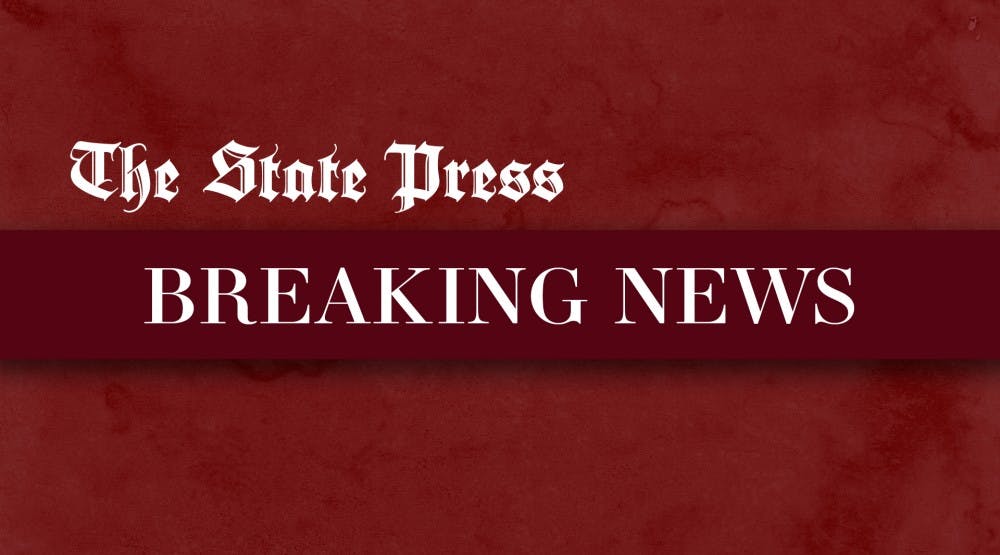ASU is denying claims that it purposely failed students in its economics department and forged a deal that required students to pay to turn in homework after an email went viral Thursday afternoon.
The email, which was sent to students Thursday morning by clinical assistant professor Brian Goegan, included the claim that ASU made a deal with Cengage, an education and technology company, that required professors to put homework behind a paywall, forcing students to pay for a subscription to turn in homework.
"In order to convince Cengage to give the Provost a large monetary grant, the department agreed to require all ECN 211 and 212 students use MindTap - a Cengage product," Goegan said in the email. "This deal requires students to pay just to turn in their homework."
Bret Hovell, a University spokesperson, said that "as with all of ASU’s adaptive learning courses up to this point, there has been a course fee associated with using the adaptive platform," noting that the class is a voluntary option and that regular economics classes are available.
Hovell also said Cengage gave no such grant to the University, and that no such grant is planned.
"Cengage has never provided a grant to ASU," Hovell said. "Period, not a large one, a medium-sized one or a small one."
In a follow-up interview with The State Press, Goegan said Arthur Blakemore, who is the vice provost for student success, was the former head of ASU's economics department and "started talking to Cengage, and to seal the deal, he agreed with them that he would require all of the principles of microeconomics and principles of macro economic courses to use their current software program called MindTap."
The email quickly spread on social media, with people sharing it on Twitter, Facebook and Reddit and calling for the University to reinstate the professor, who many students called one of their favorites.
Goegan and his supporters suggested that everyone should contact ASU President Michael Crow and the University.
The email also claimed that professors were required to fail a certain amount of students.
"The second policy was put in place to ensure that the Provost's project was made to look good," Goegan said in the email. "All ECN 211, 212, and 221 courses were required to prevent at least 30% of students from passing the class."
Hovell called that claim "false and bewildering" and said "this is a thoroughly fabricated idea."
"There has never been anything like this considered," he said, pointing to an excerpt of ASU's charter that states the University is defined by "... whom we include and how they succeed."
In December, a group of students said they found out that Goegan would be removed and responded by delivering a list of statements of support a month later to Gustavo Ventura, the chair of the economics department.
Alexandria Gaw, a senior accounting student and the president of the Student Economics Association was among those supporting Goegan.
“He was amazing and a few of us on the board of the Student Economics Association went out to contact the econ department head Gustavo and the Assistant Dean Michael Goal, trying to get his job back," she said. "We even got a list of statements and letters from students."
Gaw said it seemed as if the associate dean and head of the department didn't want to acknowledge the appreciation that students showed for Goegan. Following the circulation of the accusations on Thursday, additional students have expressed their support for Goegan as well.
Despite denials of wrongdoing by the University, students across social media shared their discontent with the Cengage applications.
Hovell said the University is not able to comment on ongoing personnel matters.
Cengage did not return a request for comment at the time of publication.
Executive Vice President and University Provost Mark Searle released a written statement on the controversy Thursday evening, writing that the University has “looked into these claims and have found no factual evidence to support them.”
“As with all of ASU’s adaptive learning courses up to this point and many other classes there has been a course fee associated with using the adaptive platform,” Searle said in the statement. “There is a fee to use MindTap but it also pays for the class (digital) textbook.
Searle also reiterated that there are alternative classes that students can take that do not require the software.
“We regret if the spread of this misinformation online has caused confusion on these matters,” he said. “If you have any questions or feedback, do not hesitate to contact me.”
While Searle said that the University does not comment on "details of disciplinary matters related to faculty," he said in the statement that one reason they could be let go is ... when a faculty member resists course-correction of multiple shortcomings despite supervisory intervention."
Correction: An earlier version of this story misstated the position of clinical assistant professor Brian Goegan. The mistake was in the second paragraph and the article has been corrected to reflect that change.
Editor's Note: This story was updated at 7:32 p.m. to include a statement from ASU Vice President and University Provost Mark Searle. This is a breaking story and will be developed as more information becomes available.
Reach the reporters at isaac.windes@asu.edu and bstoshne@asu.edu or follow @isaacdwindes and @itsbrennaaaa on Twitter.
Like The State Press on Facebook and follow @statepress on Twitter.




